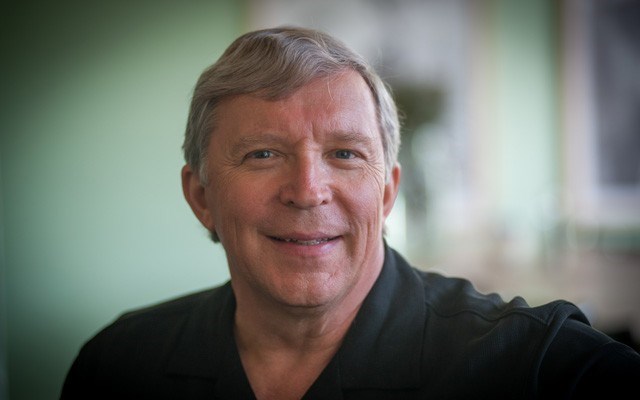One of Canada’s most innovative universities will have a new face at the helm when it welcomes students for the fall semester.
On Tuesday, May 19, Squamish’s Quest University announced its fourth president and vice-chancellor elect, Peter Englert, who brings a wealth of teaching, research and administrative experience to the position.
“I’ve operated and run universities, departments and colleges and I feel that my forte here will be to bring the university into an administratively sustainable and prosperous state,” Englert said.
An American citizen who was born and raised in Germany, Englert has over three decades of experience working in higher education that has taken him around the globe. He previously served as chancellor of the University of Hawaii at Manoa, and prior to that was the pro vice-chancellor and Dean of Science, Architecture and Design at New Zealand’s Victoria University of Wellington. He has also taught in Italy, Austria, China, Japan and California.
Englert’s long-term vision is to raise Quest’s profile both regionally and further afar, and build on its reputation as a leader in modern education.
“I’d like to build on establishing the university in British Columbia and take on a leading role in Canada, the continental North America and internationally,” he said. “I think we have lots to gain in placing this university in the right light and environment for people to see.”
Opened in 2007, Quest University is an independent school founded on the principles of student-driven, experiential learning that utilizes a block-style scheduling system, meaning students are enrolled in a single course at a time rather than several simultaneously.
It’s a model that is growing in popularity both domestically and internationally, and one that Englert encountered firsthand while teaching a summer course in nuclear chemistry at San Jose State University.
“I saw very clearly that the students who were exposed to the material and the way we were teaching it in a more open way, where questions could be asked and problems could be solved, was by far superior in the outcome then when I would teach the class during the regular semester,” Englert said.
“I feel that in our modern day and time it is very important that students be able to interact with the faculty and answer some of the problems on their own, and this way of teaching provides the opportunity to do that better than any other.”
As Quest’s reputation has grown, so too has demand — so far the school has 940 applications from prospective students for 180 spots in September’s entering class. Englert stressed that a measured approach is essential when considering any potential rise in enrollment in the future.
“I don’t see a significant drive to actually increase enrollment significantly,” he noted. “Once we have reached a level of sustainability that we really feel comfortable with, then it’s time to think about what’s next.”
Quest’s new president replaces David Helfand, who steps down after seven years on the job. Englert admitted his predecessor has left him with some pretty big shoes to fill.
“I’m absolutely appreciative of what David has done because in the last seven years he has brought the Quest concept to reality,” he said. “He has brought this endeavour to an academic standing that is outstanding and is at the forefront of the role of education in modern times. It’s a hard act to follow, but I feel confident that I can do it.”
Englert will arrive in Squamish next week to be formally introduced to staff, faculty and students, before assuming his new role on Aug. 1.




